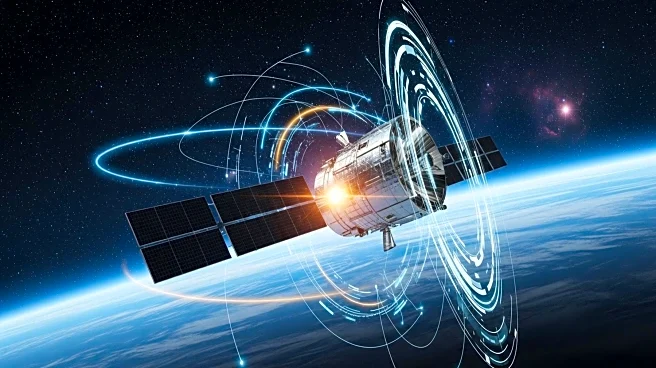What's Happening?
TechCrunch Disrupt 2025, held at San Francisco's Moscone West from October 27-29, will feature a panel on the Space Stage with prominent figures in space technology. Bridgit Mendler, Even Rogers, and Max Haot will discuss advancements in the orbital industry. Mendler, CEO of Northwood Space, will focus on scaling ground station networks for satellite connectivity. Rogers, CEO of True Anomaly, will address space defense technologies and orbital security. Haot, CEO of Vast, will explore artificial gravity space stations. The event aims to showcase operational realities in space innovation, with over 10,000 attendees including founders, investors, and operators.
Why It's Important?
The panel at Disrupt 2025 highlights significant developments in the space industry, which is crucial for national security, commercial growth, and technological advancement. Mendler's work on satellite connectivity infrastructure is vital for expanding communication capabilities. Rogers' focus on space defense technologies addresses the growing need for security in orbit. Haot's artificial gravity space stations could revolutionize long-term space habitation. These discussions are pivotal for startups and established companies looking to enter or expand in the space sector, emphasizing the importance of government-commercial partnerships.
What's Next?
The insights shared at Disrupt 2025 could influence future investments and policy decisions in the space industry. Stakeholders may explore collaborations to enhance orbital security and connectivity infrastructure. The development of artificial gravity space stations could lead to new opportunities for habitation and research in space. Companies and governments might prioritize partnerships to leverage these advancements, potentially accelerating the commercialization of space technologies.
Beyond the Headlines
The discussions at Disrupt 2025 may have ethical and legal implications, particularly concerning space defense and autonomy. As space becomes more commercialized, issues such as space debris management and international regulations could arise. The focus on artificial gravity and long-term habitation may also prompt cultural shifts in how society views space exploration and its potential impact on human life.










